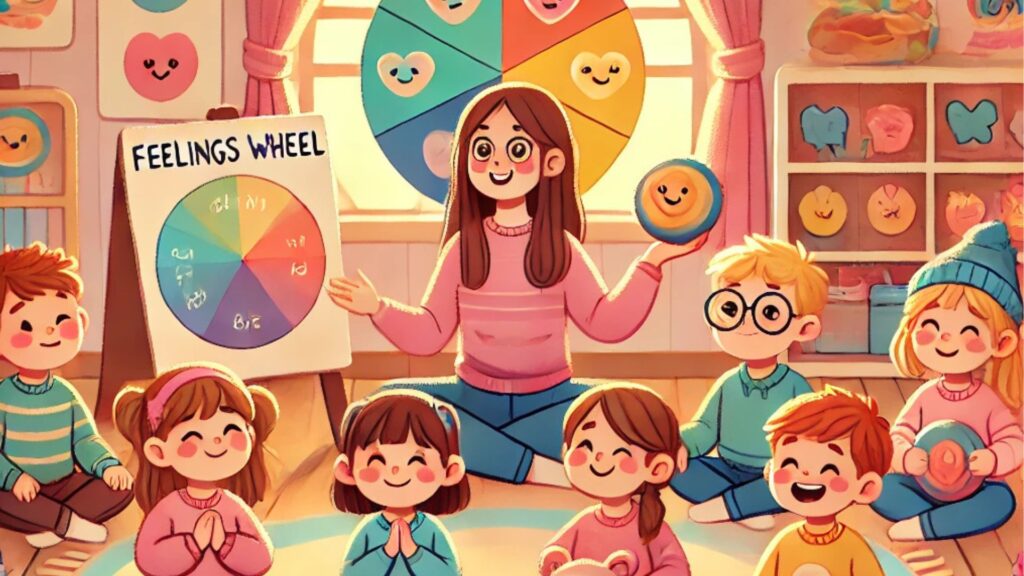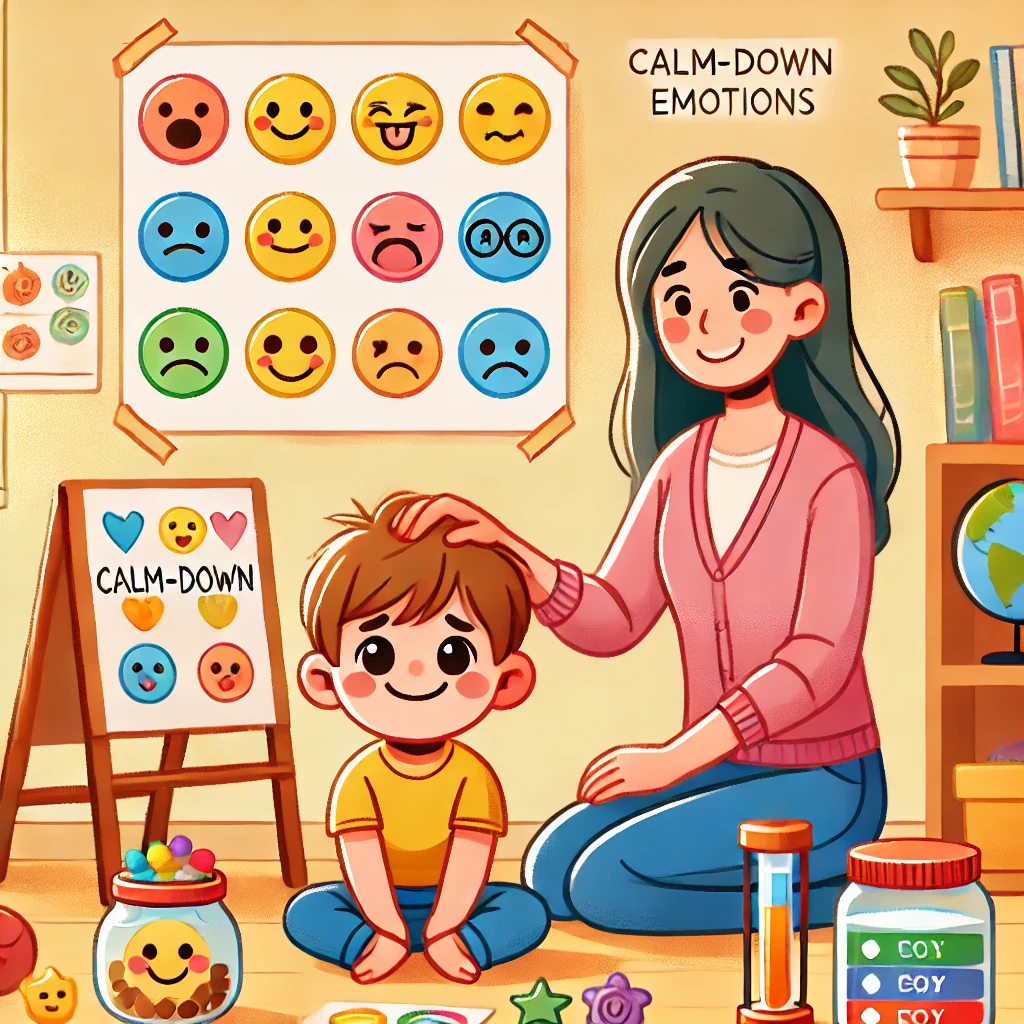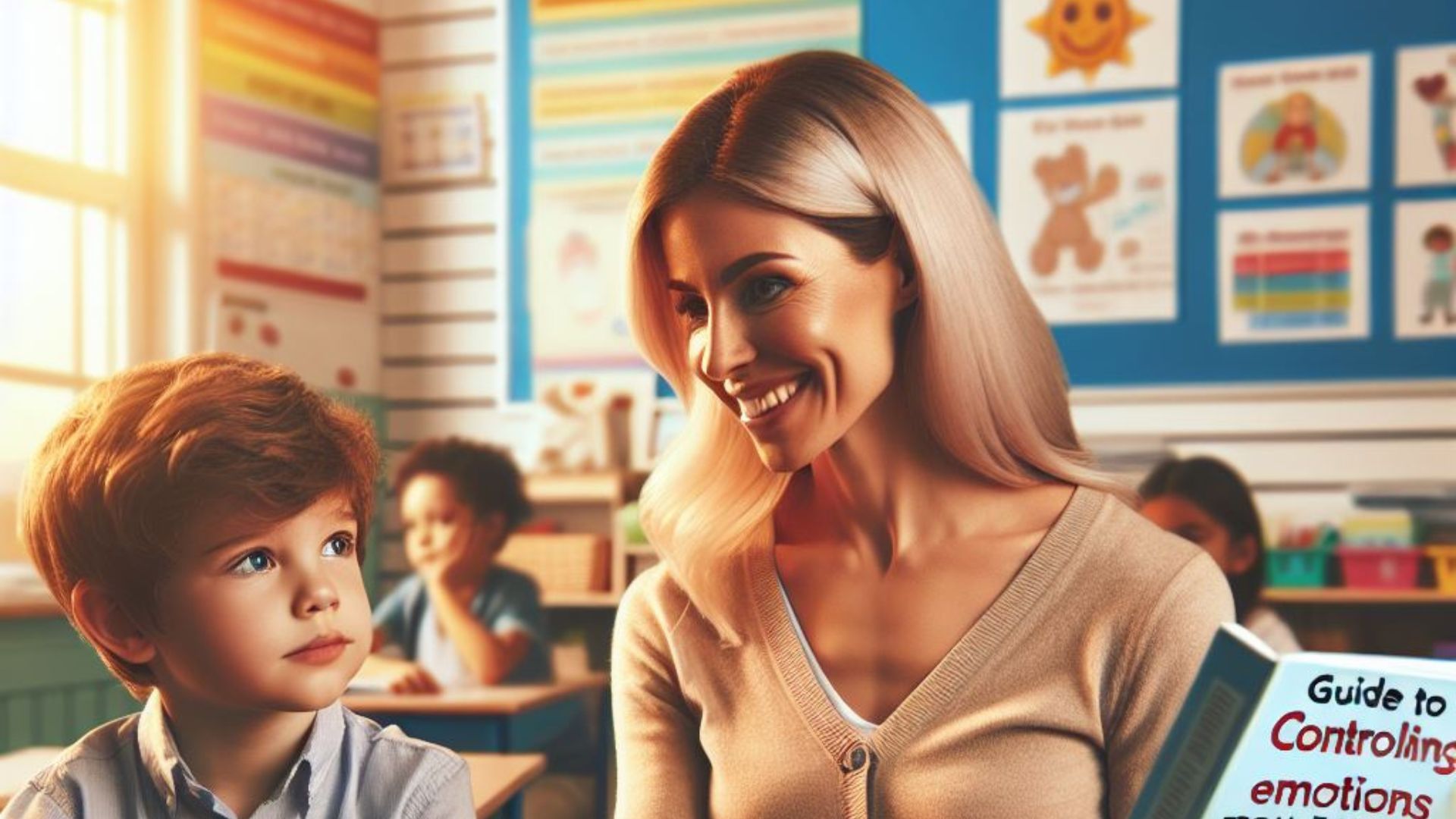Managing children’s emotions is essential for their overall development and well-being. But many parents and educators wonder how to support children in managing their feelings effectively. In this guide, we will explore the importance of social-emotional education and share practical strategies based on emotional psychology that promote emotional control in children. In addition, we tell you how at Eurocolegio Casvi International Private School, we work on these skills for the emotional and social growth of children.
WHY IS IT IMPORTANT TO CONTROL EMOTIONS FROM A YOUNG AGE?
In early childhood, children are confronted with a variety of situations that can cause intense emotions, while they are still learning to interpret and manage them. This process of emotional exploration is crucial, as it influences their ability to form relationships, make decisions and overcome challenges as they grow up.
Without a solid foundation in emotion management, children may experience additional challenges in their social-emotional development.
Studies in emotional psychology have shown that children who learn to control their emotions from an early age develop greater resilience, empathy and security.
At the same time, these studies highlight that emotion control can be worked on effectively through specific social-emotional education strategies. By helping children to understand how to control their emotions, we contribute to their personal growth and overall well-being.

THE VALUE OF TEACHING EMOTIONAL CONTROL IN CHILDHOOD

Sometimes children react impulsively, either with tantrums, crying or frustration. This is completely natural. However, social-emotional education allows them to acquire tools to manage these emotions.
Ignoring this need can have consequences. A child with difficulties in managing emotions may experience problems in school performance, difficulties in socialising or even in developing empathy.
Recent research, such as that conducted by the American Psychological Association, highlights that children with good emotional control are more likely to build strong relationships, overcome conflict and adapt better to changing situations. These studies also highlight the role of adults in their environment in providing role models and guidance to promote emotional self-control.
PRACTICAL STRATEGIES FOR FOSTERING EMOTIONAL CONTROL IN CHILDREN
For parents and educators interested in how to manage children’s emotions, we share some practical and easy-to-implement strategies that have proven to be effective:

HELPING THEM TO RECOGNISE THEIR EMOTIONS
Identification is the first step. Use cards or picture books with facial expressions or situations so they can name their emotions. In this way, children become familiar with emotional terms and learn to communicate how they feel. Tip: Books such as The Colour Monster by Anna Llenas are excellent for this.
CREATE A "CALM CORNER".
A relaxation space can help them find calm when experiencing intense emotions. Fill the corner with pillows, cuddly toys, books or sensory elements that allow them to relax and, above all, reflect before reacting.
BREATHING AND MINDFULLNESS EXERCISES
Simple deep breathing and mindfulness techniques are useful for managing stress and anxiety. A good idea is the ‘flower exercise’, where children inhale imagining they smell a flower and exhale as if blowing out a candle. Practising this in quiet moments prepares them to use it when they feel intense emotions.
FOSTERING EMPATHY AND EMOTIONAL COMMUNICATION
Talking about emotions and asking how they think others might feel in certain situations is fundamental to developing empathy. This also improves emotional communication and helps children understand the effects of their actions on others.
PRACTISING ROLE-PLAYING
Through role-play, children can explore how they would react in specific situations. This gives them the opportunity to experience different reactions, identify how they feel and learn positive ways to respond.
ESTABLISH ROUTINES WITH BREAKS
Creating moments of respite in the daily routine helps them to reduce stress. This can include times of free play, reading or creative activities that allow them to relax and express their emotions.
BE A ROLE MODEL
Adults are the most important example. Showing calm, patience and self-control when we experience strong emotions helps children see and learn from our emotional responses.
HOW DOES CASVI PROMOTE THE CONTROL OF EMOTIONS FROM EARLY CHILDHOOD?
At Eurocolegio Casvi International Private School, we know that controlling emotions is a fundamental skill for life. For this reason, from an early age, we implement a comprehensive socio-emotional education programme in our classrooms. Through structured activities, children learn to identify and express their emotions in a safe environment, experiencing situations that help them develop calm, empathy and self-control.
Their educators are also trained in emotional education techniques and work as a team with families to promote healthy socio-emotional development at every stage of the children’s school life.
Do you want to know more about our socio-emotional education programme at Casvi?
Find out how we can help your child develop a strong emotional foundation and grow up with a balance between academic education and emotional well-being.
RECOMMENDED RESOURCES FOR PARENTS AND EDUCATORS
- Books on emotional intelligence: El Monstruo de Colores by Anna Llenas is an excellent resource for teaching children about their emotions.
- Breathing technique videos for children: The YouTube channel Mindful Kids offers short, child-friendly videos to teach children how to breathe and calm themselves.
- A Practical Guide to Emotional Control for Children: The American Psychological Association offers a free downloadable guide that explains more about how children’s emotions are controlled and how parents can support them.
Controlling emotions is a fundamental skill for children. Promoting social-emotional education from an early age can make a big difference in their overall development. By applying these strategies at home and with the support of an educational environment such as Casvi Villaviciosa International Private School, we can help our children to grow up with the confidence, empathy and resilience necessary to face the world.

